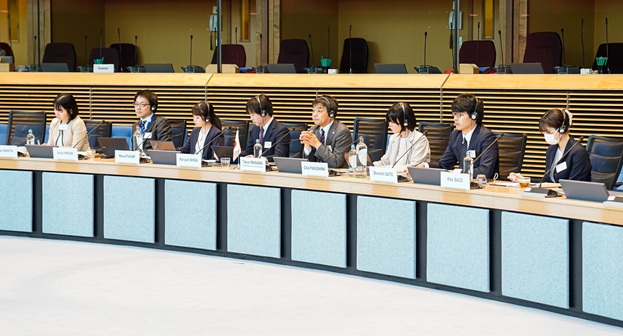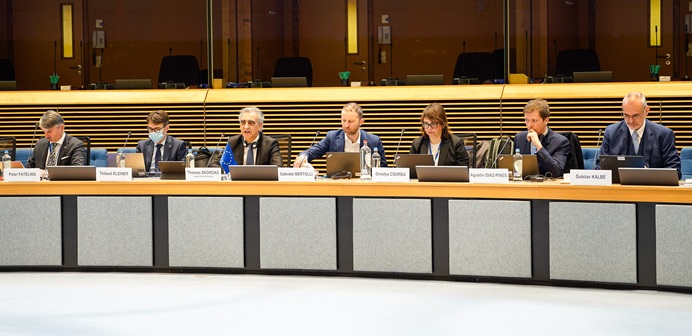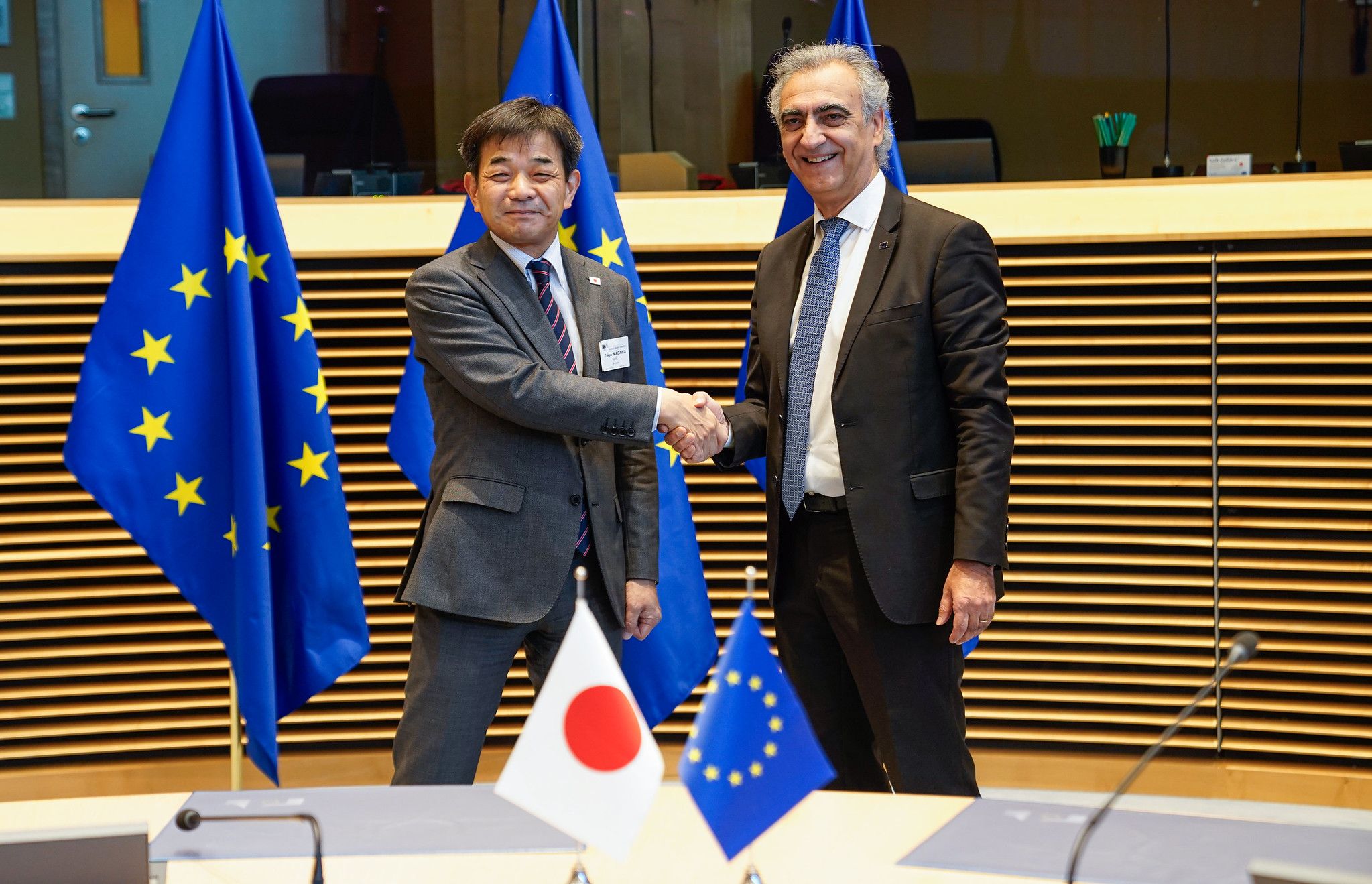March 10, 2025 Outcomes of the 30th Japan-EU ICT Policy Dialogue
On Thursday, March 6, 2025, the Ministry of Internal Affairs and Communications (MIC), in collaboration with the European Commission’s Directorate-General for Communications Networks, Content & Technology (DG CNECT), held the 30th Japan-EU ICT Policy Dialogue in Brussels.
This policy dialogue aims to deepen mutual understanding and promote cooperation between Japan and the EU in the field of ICT policies. At this meeting, both sides had lively discussions on each other's latest initiatives regarding important themes in the ICT sector between Japan and the EU.
In response to the outcomes of this meeting, both sides will continue to work towards further deepening and materializing cooperation between Japan and the EU.
At the 30th Japan-EU ICT Policy Dialogue, discussions were held mainly on the following topics, considering the policy trends and challenges in the ICT sector in both Japan and the EU.
i. 5G, Beyond 5G/6G
The Japanese side provided an explanation of the diversification of telecommunications infrastructure, including Open RAN, ensuring resilience, deployment in third countries such as ASEAN countries, and an overview of the “Beyond 5G Promotion Strategy 2.0,” which was announced in August of last year. Both sides also confirmed the progress being made towards the launch of international joint research projects with an eye to Beyond 5G/6G standardization. Furthermore, both sides discussed these initiatives.
ii. Digital infrastructure
The Japanese side provided an explanation of the measures being taken to ensure the safety and reliability of telecommunications infrastructure under the Act on the Promotion of Ensuring National Security through Integrated Implementation of Economic Measures, the effective collaboration of power and communications through the development of efficient power and communications infrastructure (watt-bit collaboration), and the measures being taken to strengthen digital infrastructure through the decentralization of data centers. The EU side provided an explanation of their initiatives, including the recommendation to member states regarding submarine cables issued in February last year, the action plan on security published last month, and measures to strengthen connectivity within and outside the region. Furthermore, both sides discussed their respective initiatives.
iii. AI
The Japanese side provided an explanation of the AI Guidelines for Business published in April last year, the discussions at the AI Strategic Council, the “Reporting Framework” of the Hiroshima AI Process International Code of Conduct, and the launch of the Friends Group and its participating countries. The EU side provided an explanation of the status of the formulation of the Code of Practice for the implementation of the AI Act, which came into effect in August last year, as well as support for AI development and capacity building. Furthermore, both sides discussed their respective initiatives.
iv. Online platforms
The Japanese side introduced measures to combat the spread of dis-/mis-information on the Internet, including awareness-raising and literacy improvement, the development and demonstration of countermeasures technology, institutional responses such as the “Information Distribution Platform Act,” and initiatives to protect young people, while the EU side provided an explanation of the implementation status of the Digital Services Act (DSA), measures to counter dis-/mis-information in elections within the region, and initiatives for youth and consumer protection. Furthermore, both sides discussed their respective initiatives.
v. Quantum technology
The Japanese side provided an explanation of the initiatives on research and development of quantum communication technology, human resource development, standardization, and testbed, while the EU side provided an explanation of the progress of the “EuroQCI” project for the construction of a quantum communication network in Europe.
vi. Cybersecurity
The Japanese side provided an explanation of the new initiatives of the NOTICE project, the ASEAN-Japan Cybersecurity Capacity Building Centre (AJCCBC), and the current situation of cybersecurity human resource development in the Pacific region. The EU side explained the situation regarding the Cyber Resilience Act, initiatives for the security of critical infrastructure and supply chains, and human resource development in the Indo-Pacific region. Furthermore, both sides discussed their respective initiatives.
(Reference) Attendees of the 30th Japan-EU ICT Policy Dialogue
Japanese side: Dr. IMAGAWA Takuo, Vice-Minister for International Affairs, MIC, and others.
EU side: Mr. Thomas SKORDAS, Deputy Director-General – DG CNECT of the European Commission, and others.
 |
 |

Press Release
・Outcomes of the 29th Japan-EU ICT Policy Dialogue (February 22, 2024)
https://www.soumu.go.jp/main_sosiki/joho_tsusin/eng/pressrelease/2024/2/22_2.html
